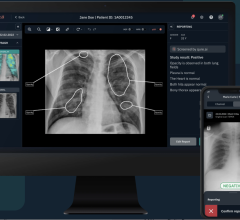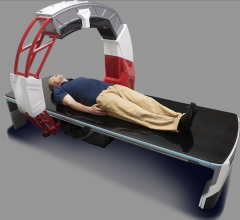
GE's SnapShot Pulse offers improved dose reduction results for both diagnostic cardiac and neuro perfusion CT exams and has been reportedly proven to reduce a patient's radiation exposure by up to 83 percent.
Accompanied by the SnapShot Pulse will be the GE's LightSpeed VCT XT, a CT scanner that reportedly maintains high-quality imaging while reducing patients' radiation exposure by up to 70 percent for diagnostic cardiac scans.
LightSpeed VCT XT builds on the foundation of GE's advanced CT platform, which is capable of capturing images of the heart and coronary arteries in as few as five heartbeats. LightSpeed VCT XT includes hardware and enhanced applications that provide new capabilities for imaging the heart, head, and other body parts.
In standard cardiac CT exams, the X-ray is on for the duration of a scan, even during periods when a patient's heart is at an undesirable phase. With the new SnapShot Pulse, an automated response to a patient's heart rate ensures that the X-ray is only on for portions of a scan. This process, called prospective triggered gating, significantly reduces a patient's X-ray exposure time.
Additionally, LightSpeed VCT XT is reportedly the first multislice scanner capable of performing CT angiographic studies known as step-and-shoot, in which the table moves from one location to the next to cover the entire volume of the patient's heart. LightSpeed VCT XT tracks a patient's heart rate real-time so the X-ray and acquisition time is driven by each individual patient, enabling clinicians to obtain high quality images with a very low dose exposure.


 August 09, 2024
August 09, 2024 








